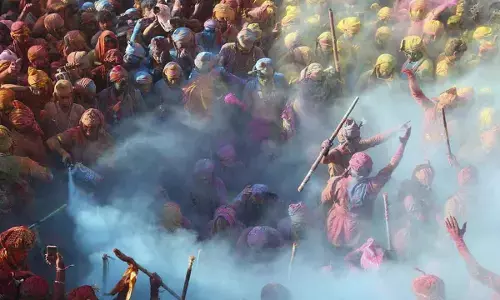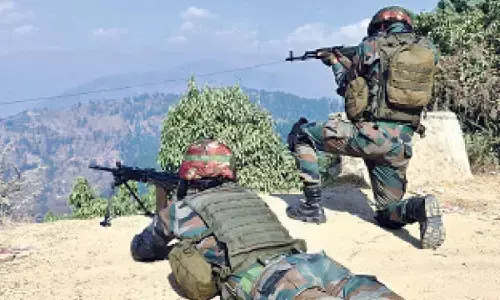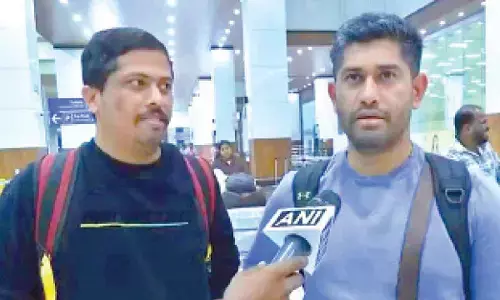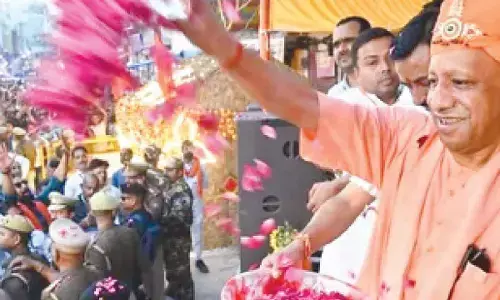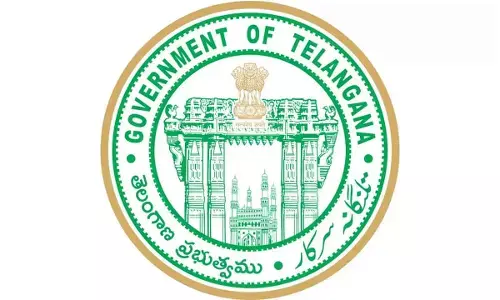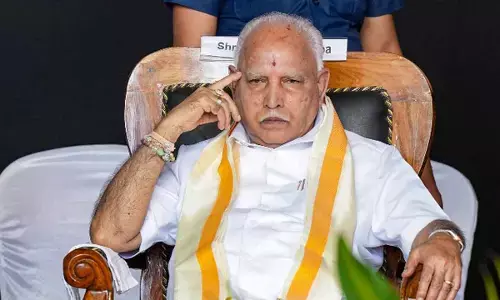Dasara marks triumph of good over evil
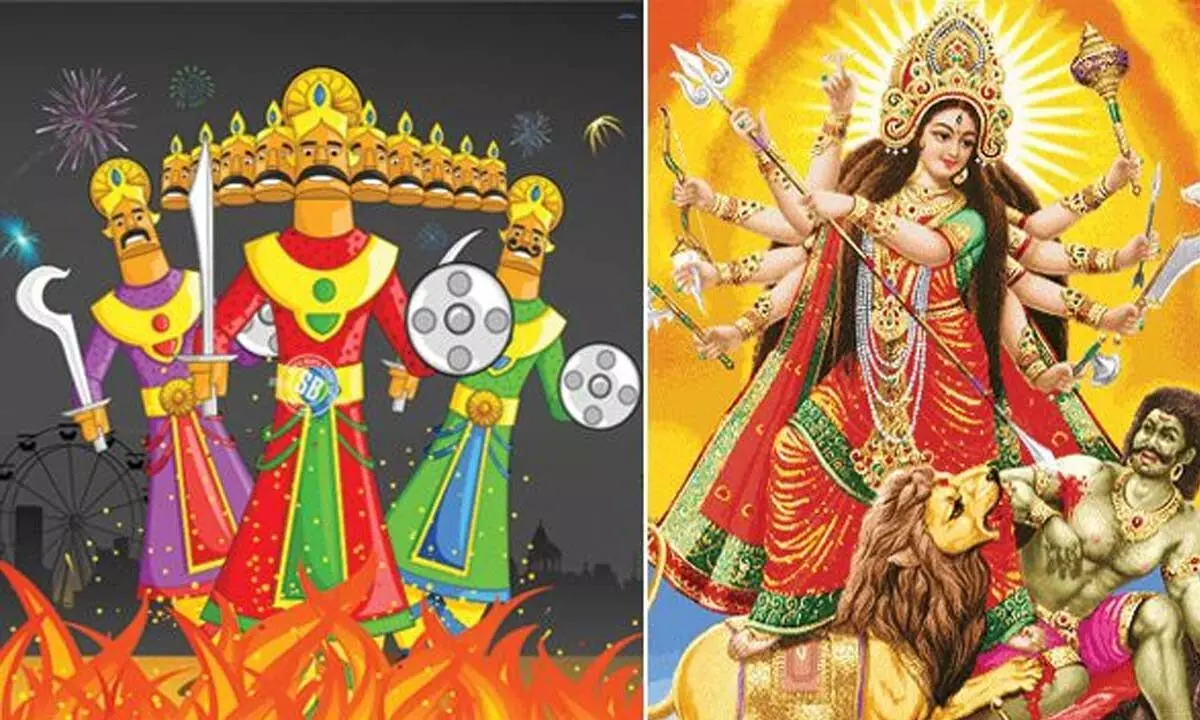
The festival’s traditions, rituals, and stories carry a deep moral and spiritual message
Dasara, also known as Vijayadashami, is one of India’s most significant festivals, celebrated with grandeur and fervour across the country. Marking the culmination of the nine-day Navaratri festivities, the festival symbolises the triumph of good over evil. In Indian culture, this festival holds immense religious, spiritual, and cultural significance, embodying values of righteousness and the victory of virtuousness over malevolence. has shed light on the deeper spiritual and cultural essence of Dasara, enriching our understanding of this ancient tradition. Dasara is rooted in two prominent religious stories that celebrate the conquest of good over evil.
The victory of Lord Rama over Ravana: Dasara commemorates the victory of Lord Rama, an avatar of Vishnu, over the ten-headed demon king Ravana, who had abducted Rama’s wife, Sita. After a fierce battle that lasted 10 days, Lord Rama slayed Ravana on the day of Vijayadashami, symbolizing the defeat of ego, evil, and injustice. The effigy-burning tradition across India represents the destruction of Ravana and the purification of society by overcoming negativity.
The triumph of Goddess Durga over Mahishasura: In another key narrative, Dasara celebrates the triumph of Goddess Durga over the buffalo demon Mahishasura. The demon, symbolising chaos and darkness, was invincible to all gods and men. After a battle that lasted nine days and nights, Durga vanquished Mahishasura on the tenth day, which is celebrated as Vijayadashami. In this story, Durga represents the divine feminine force, Shakti, and the festival marks her victory as the protector of righteousness.
Chilakamarthi Prabhakar Chakravarthy Sarma eloquently explains these legends as profound allegories for the moral and spiritual battles that take place within every individual. He emphasises that the real essence of Dasara is found not only in external festivities but in internal self-reflection and the continual conquest of one’s own ego and negative traits.
Cultural practices and regional variations: Dasara is a vibrant cultural celebration with rituals, plays, fairs, and social gatherings forming a core part of the festival. Across India, the celebrations vary, yet the central theme of victory remains consistent.
In north India, in cities like Varanasi, Delhi, and Lucknow, large effigies of Ravana, his brother Kumbhkaran, and son Meghnath are burnt to symbolise the victory of good over evil. The epic Ram Leela, a theatrical enactment of the Ramayana, is performed in many parts of northern India, culminating in the defeat of Ravana.
In west India, in Gujarat and Maharashtra, the festival is celebrated with much grandeur, where communities come together for the traditional folk dance called Garba and Dandiya during Navratri. The day of Dussehra is often marked by the worship of tools, vehicles, and weapons, recognizing the importance of work, warfare, and tools of livelihood in daily life.
In the east, in West Bengal, Assam, and Odisha, the day is celebrated as the grand culmination of Durga Puja. Lavishly decorated pandals (temporary shrines) are built to honor Goddess Durga, and the final day sees the immersion of her idol in rivers, symbolizing her return to Mount Kailash.
In the south, in Karnataka, Tamil Nadu, and Andhra Pradesh, the festival is celebrated as a day of auspicious beginnings. In Mysore, Karnataka, the royal family traditionally leads a grand procession known as Jamboo Savari.
Chilakamarthi Prabhakar Chakravarthy Sarma underscores the regional diversity in Dasara celebrations, interpreting the festival as a unifying force that brings together the varied cultural practices across India, all centered around the universal theme of righteousness and victory.
Spiritual and Social Importance: The festival not only highlights religious victory but also serves as a time of renewal, rejuvenation, and the celebration of virtues such as courage, determination, and discipline. As per Sarma’s insightful interpretations, the burning of Ravana’s effigy is symbolic of destroying the ten undesirable qualities of human nature: lust, anger, delusion, greed, pride, jealousy, selfishness, injustice, cruelty, and ego.
This day also marks a significant occasion for students, artisans, and warriors who worship their tools and weapons. The celebration of the Ayudha Puja during Dussehra demonstrates the veneration of learning and craftsmanship, emphasizing the importance of knowledge, creativity, and skill in society.
Furthermore, Dasara is considered an auspicious day to start new ventures, signifying prosperity, peace, and success. The festival encourages communities to come together, share joy, and reaffirm their dedication to righteous living.
In the words of Chakravarthy Sarma, Dasara is not merely a day of celebration but a reflection of the constant battle between good and evil within and around us. It is a reminder to continually strive for self-purification, just as Rama and Durga fought against external evils. The festival’s traditions, rituals, and stories carry a deep moral and spiritual message, teaching the values of courage, humility, and virtue.
Dasara’s cultural richness, combined with its religious depth, makes it one of the most important festivals in India, transcending regional boundaries and uniting the nation in the shared celebration of good over evil.


